Chinese Apps vs Western Apps // Who Wins The War?
Spotify or QQ, YouTube or YouKu // East vs West
Instagram, YouTube, QQ, Weibo, Wechat, Whatsapp – we are all pretty familiar with these apps but when you pit them against one another, who wins the Chinese Apps vs Western Apps war?
Today, we put some of the biggest names in the world head-to-head to see who really does it better…!
Do remember, these are simply our opinions. We’ll litter the article with facts also, but ultimately our ratings and choices are personal preference! Do feel free to comment below with your thoughts, we love hearing from all of you.
If you want to look at a certain battle in more detail, we also have dedicated articles for most of the battles below, which we’ll link to as well.
Let’s go…!
Chinese Apps vs Western Apps – Google vs Baidu
Chinese Apps vs Western Apps – YouTube vs Youku
Chinese Apps vs Western Apps – Spotify vs QQ
Chinese Apps vs Western Apps – Netflix vs iQiyi
Chinese Apps vs Western Apps – Instagram vs Xiaohongshu
Chinese Apps vs Western Apps – Whatsapp vs WeChat
Chinese Apps vs Western Apps – Google vs Baidu
China’s biggest search engine vs… well the world’s biggest search engine.
Baidu’s numbers are impressive but ultimately they were always fighting an uphill battle. Giants come no bigger than Google.
Whereas Baidu is China’s #1 search engine, Google is the rest of the world’s and although China boasts an astonishingly large population that well exceeds a billion people…, that still leaves a few other billion for Google to sweep up!
As of April 2021 Baidu claims 72.07% of China’s internet searches. Dropping a couple of % from two years ago.
Source here
With Google being banned in China, it doesn’t make the China search list (although of course there will be people using VPN‘s to access Google in China – not least the many foreigners there).
Head further east though, and you’ll notice that things completely flip around.
Google accounts for 74.76% of Japan’s web searches in April 2021, with Baidu taking up a mere 0.11% (presumably the Chinese population in Japan for the most part).
Source here
Jump back over to the west, and to Germany for example…
As of April 2021 Google takes up 91.32% of all web searches. Bing comes 2nd at 5.02%
Source here
See the trend here?!
You probably knew Google was dominant, but perhaps not this much so. Other search engines like Bing, Yahoo, Ecosia and of course Baidu, barely have a hope!
Google and Baidu are about more than just search though. Both offer translation tools as an example…
CHECK IT OUT – we wrote a post comparing Baidu Translate vs Google Translate. Which one wins?
There are many additional tools that come alongside these two giants also. Think of Google’s Analytics, Business Listings, Adwords on Google (which barely scratches the surface by the way).
Baidu also has its own unique offerings which include a missing person search, senior citizen search, and also a patent search. These are indeed specific to Chinese governmental requirements.
However, despite all the bells and whistles attached – it all comes down to search, and no one beats Google on a world scale – not even close.
Baidu 百度
Chinese Apps vs Western Apps – YouTube vs YouKu
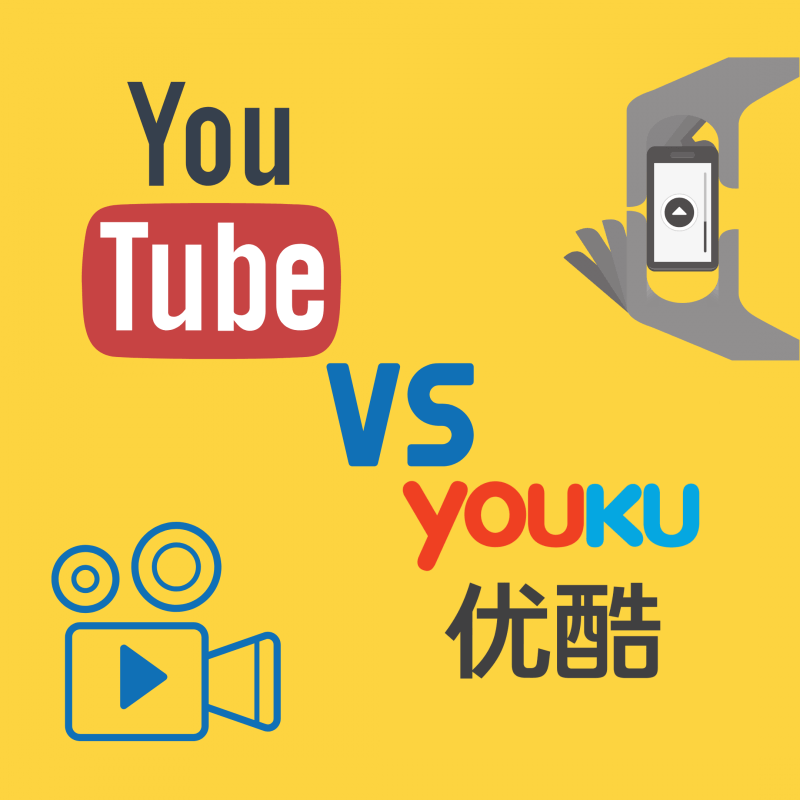
Two video giants.
YouTube is the website we all know and love. It can boast 2 BILLION users worldwide, that’s roughly 33% of the world entire population!
Staggering!
Very much like Google it absolutely dominates in what it does – sharing video.
YouKu is the same, but again based mainly in China.
You’ll notice in fact most of the western apps we talk about today are actually banned in China!
One thing they do both have in common (bar the fact they are video giants) is that they continue to grow at a rate of knots considering video is becoming more and more popular with users.
Who was first? YouTube, but only by a year…
YouTube began back in 2005 with YouKu following a year later in 2006.
YouKu cannot come anywhere near the 2 billion users of YouTube, but it does absolutely dominate the market in China with near enough 500 million active monthly users – around 33% of China’s population.
Whilst YouTube’s numbers are strong given their international success, Youku provides a better experience for advertisers.
An example:
You know those adverts that appear at the start of a video on YouTube – you can skip them after 5 seconds normally, right? Not so on YouKu.
I’m sure you’re thinking that’s a massive pain, and perhaps for a viewer it is, but think from the advertisers perspective…?
Unless you subscribe to YouKu VIP, you’ve got 30 seconds to sit through before you can watch your video, something that benefits the advertiser greatly.

Of course opinion would be divided on this depending on whether you are a casual viewer or seller.
Another smart advertising feature of YouKu… the Pause Advert.
This means when the user pauses a video on YouKu, rather than showing a still image of the video, a static advert pops up.
When it comes to sheer numbers though, there is no competing with the world’s second biggest website.
IN FACT DID YOU KNOW – YouTube is now the world’s SECOND LARGEST SEARCH ENGINE! It’s even more powerful than the actual search engines like Bing, Yahoo and the rest! Crazy.
YouTube and YouKu, unsurprisingly, were both bought out by bigger names, Google (in 2006) and Alibaba (in 2015) respectively.
So whilst YouTube and YouKu do the same things they also go about them quite differently, which we’ll sum up in this table below.
Ultimately, and you’ll find this with a number of Chinese apps – e-commerce is the way of the day in China.
The apps gives merchants a huge platform to sell their products, and it works. e-commerce is now bigger in China than anywhere else in the world, by a distance!
| YouTube | YouKu |
|---|---|
| Allows users to skip adverts | Adverts cannot be skipped |
| Focus on user-generated content | Strong e-commerce focus |
| History of siding towards a shorter video format | More focus towards TV Shows and Movies |
| Less Competition | Strong competition in China |
| Wants to build a worldwide basis | Strongly focused towards the Chinese market |
| Works to stamp out copyright infringements | No real effort to stop copyright material |
One thing is for certain though, YouKu is a fantastic place to learn Chinese and for that reason, we just about push it level with YouTube.
If you want to read more about YouTube and Youku we wrote a separate blog that goes into more detail here.
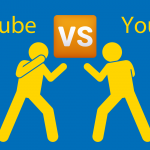
YouKu vs YouTube 🥊 The Ultimate Debate | Who Really Wins?
Youku vs YouTube is effectively Chinese YouTube vs YouTube! As with many successful apps and websites, China loves to create their own version.
Youtube
YouKu 优酷
Chinese Apps vs Western Apps – Spotify vs QQ
If you don’t have any affiliation with China then QQ may well be somewhat of an unknown quantity.
On the flip-side, Spotify is a name that you cannot really escape no matter where you are! Spotify is of course the world’s largest paid music streaming service, developed in Sweden.
QQ Music however, still does boast some big numbers. In fact, as of 2018 the service has over 700 million users with an estimated 120 million subscribers.
Source here
Spotify, now incredibly 15 years old, is available in 79 countries to date and includes over 50 MILLION tracks.
Of course we could bog you down with big number after big number regarding Spotify but we won’t bore you with that today as we focus on Spotify vs QQ instead!
You’d assume Spotify takes the crown hands down but let’s try and balance the books a little bit here.
Costs
Overall QQ comes out much cheaper than it’s counterpart here.
QQ is split into two packages aside from the free version which does similar to Spotify free also:
| QQ VIP | QQ Luxury |
|---|---|
| Monthly: 8 CNY | Monthly: 18 CNY |
| 3 Month Package: 24 CNY | 3 Month Package: 45 CNY |
| 12 months package: 88 CNY | 12 Month Package: 168 CNY |
The proofs in the pudding. You can actually enjoy a year of QQ for less than a single month of Spotify. Not too shabby!
Learning Chinese?
Of course this will depend on personal preference but if you are a Mandarin learner your options for Chinese music are large!
Hardly surprising given where the app is from mind you.
Of course if you have no interest in Chinese music than Spotify takes the crown without any questions so this battle really isn’t about which is the better app, but moreso which side you prefer to be on.
The fact remains though, you can still indeed learn Chinese on Spotify also, and although your options are more limited, for me, it’s hard to make a case where QQ comes out on top here, despite the cheaper costs.
Gone are the days of Limewire (Millennials, remember that one). That’s in part due to Spotify.
Spotify is a world leader, it changed music forever, and nothing comes close.
Spotify
WANT MORE? We wrote an in-depth review about Spotify and QQ which takes a slightly different viewpoint (including the end result). Check it out below.

QQ Music Review (2023) 🥊 QQ Music vs Spotify
QQ Music Review. Learning Chinese through listening to Chinese songs is one of the best ways to learn Chinese like a native.
Chinese Apps vs Western Apps – Netflix vs iQiyi
The big battles just keep on coming. Another household name (pun very much intended), Netflix and China’s very own version, iQiyi.
iQiyi (奇艺 Ài qí yì) was founded in 2010 in Beijing and has over 100 MILLION VIP subscribers to its name.
Adding to those numbers iQiyi also boasts nearly 6 BILLION hours spent watching each month and over 500 million monthly active users.
Source here
So if you weren’t aware of it before, you are now. It’s not small!
DID YOU KNOW – iQiyi was actually founded by our first entry, Baidu.
Netflix, interestingly, was founded WAYYY back in 1997, a fact many people never quite realise. It was without question a slow burner.
Of course their stock was ramped up higher than ever during 2020 given the numerous lockdowns that took place worldwide.
In 2021, Netflix now has over 200 MILLION monthly subscribers, double that of iQiyi.

As we’ve seen with a few previous entries, the Chinese version comes in somewhat cheaper.
DID YOU KNOW – iQiyi sets you back just 20CNY a month. That’s barely a few dollars! This 20CNY will give you unlimited viewing and unlimited downloading – as far as you have space on your computer or phone.
One key note we discovered about iQiyi though is their move into the International market during 2019.
“In August 2019, iQiyi soft launched the multilingual, globally-available iQIYI app, which provides local languages such as English, Thai, Bahasa Malaysia, Vietnamese, and Indonesian. The company has recently been expanding its international footprint, and launched iq.com for global users”
Source here
This is a significant step for a Chinese app to take and shows their vision of the future.
You look at other examples we’ve spoken of, QQ and Baidu for example. These are very much China driven. iQiyi has other ideas.
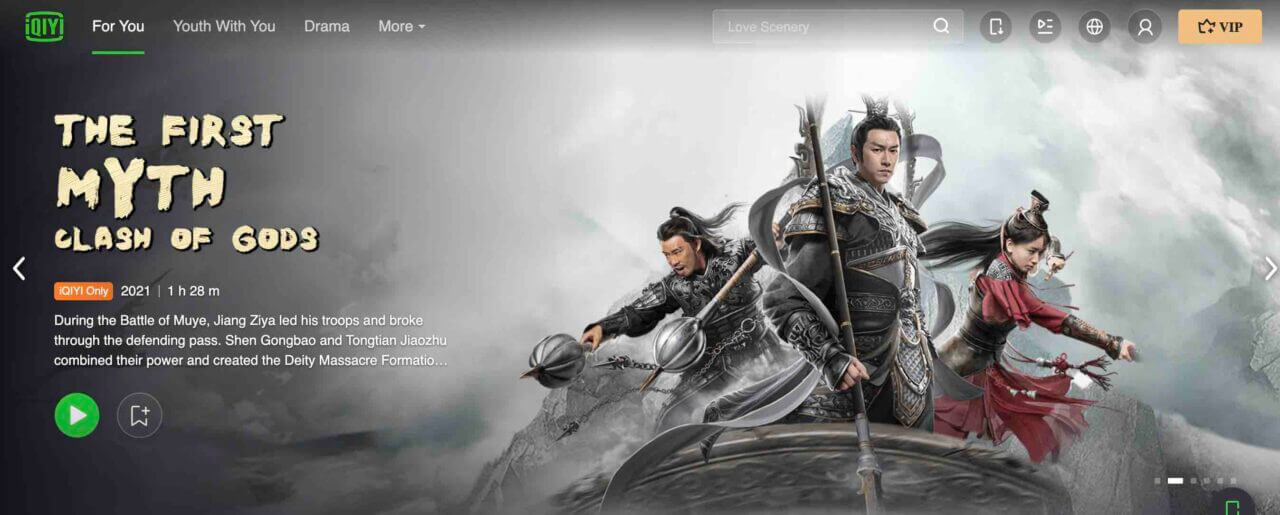
What’s The Content?
Interestingly here there’s a clear flip.
Netflix = Western Films/TV with a smattering of Far Eastern Content
iQiyi = Asian Films/TV with a smattering of Western Content
Let’s put it this way, if you like a Chinese Drama (or a Korean Drama for that matter) – iQiyi is your winner!
Both are growing their databases so this will only increase. For example, Netflix enjoyed great success with the Japanese reality TV show Terrace House.
By no means should Netflix be seen as western and iQiyi as eastern when it comes to their content though.
Both are clearly aware of the appeal of spreading their net worldwide and it’s showed.
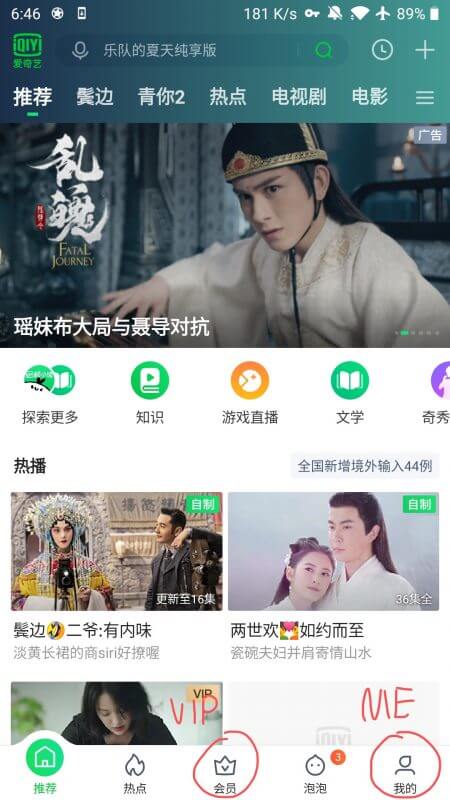
Home screen 
Your downloads area
Yes, Netflix is more popular worldwide and has some numbers we can all envy but iQiyi can be equally proud of their product.
With their vision to branch outside of China, something which many do not attempt… they deserve credit.
Both are super easy to use and with iQiyi’s cheaper prices and ability to let us watch as many C-Drama’s as we want. We give iQiyi the nod here.
Netflix
iQiyi 爱奇艺

iQiyi Review // China’s Netflix vs Actual Netflix
iQiyi Review | The best way to learn a language is immersion. We take a look at how China’s version of Netflix, iQiyi, compares to the Netflix.
Chinese Apps vs Western Apps – Instagram vs Xiaohongshu
This is an interesting matchup because whilst on the face of it they do similar things – the experience is actually a very different one.
小红书 translates to Little Red Book and is essentially China’s Instagram, but with a big twist on e-commerce.
Xiaohongshu was founded in 2013 by Charlwin Mao Wenchao and Mirand Qu Fang making it one of the newer apps in our article.
Xiaohongshu is all about creating user-generated content, but with WeChat dominant already, they had a challenge on their hands… but they had a plan!
Xiaohongshu 小红书 entered with a different position: targeting young, urban Chinese women with a strong desire of discovering and sharing shopping experiences while travelling outside China.
Find out more in our dedicated Xiaohongshu vs Instagram blog here

The e-commerce swing shows clearly with the demographics of the users for each app.
Xiaohongshu is mostly intended for young females aged between 25 and 40 years old.
86.9% of 小红书 users are women.
Instagram is also intended for young people aged between 18 and 35 years old, but not only limited to women.
There is almost 50-50 split with Instagram. 51% of users are female and 49% male.
An interesting feature on Xiaohongshu comes via the homepage where you can actually select one of the following feeds:
- See posts from the accounts they follow (this section is called 关注 guānzhù, literally “to follow”)
- Discover random products (发现 fāxiàn, literally “to discover”)
- Search for nearby products (附近 fùjìn, literally “close”)
On the ever changing Instagram you have your standard feed, which cannot be edited, or you can go to Reels (Instagram’s attempts to mimic Tiktok), but now you can also visit the SHOP… an interesting attempt to mimic the Little Red Book perhaps?
These are, as mentioned, always changing.
As you’d expect again, Instagram has a huge advantage on numbers with a worldwide audience that is most popular in the US, Brazil and India.
Incredibly Instagram claims over 1 BILLION monthly users… that’s 1 for almost every 7 people in the entire planet!
Xiaohongshu has a modest, yet still very respectable 300 million as of 2019.
However, it’s Xiaohongshu’s focus on the users wants that I really like here. They picked a market, took on the big guns (WeChat and Instagram) and built a very sound following to become one of China’s most successful apps.
It’s that bravery we tip our hats to and edge them just in front of Instagram here.
Xiaohongshu 小红书
Chinese Apps vs Western Apps – Whatsapp vs WeChat
It’s time to pit the messaging giants again each other. Who does it best though?
Whilst these are effectively two messaging platforms they are both evolving, but WeChat can certainly brag exponential options that Whatsapp does not at thie time.
It is no exaggeration to claim the following:
Life in China without WeChat is not worth living.
Now that may sound drastic, but trust us, we’re China people, life becomes infinitely harder without WeChat in your pocket.
You miss the group chats, you miss the split bills, you miss the “moments”, you miss the “can I have your WeChat”… the list goes on.
The power WeChat holds in China is almost frightening.
Whatsapp on the other hand, now owned by Facebook, boasts more worldwide users.
| 1.2 Billion Monthly Users | 2 Billion Monthly Users |
| Users mainly based in China | Used Worldwide |
India, Brazil and the US are the main protagonists for daily usage of WhatsApp but of course this is an app used in many, many countries worldwide.
Whatsapp is indeed the 3rd most used social platform in the world, whereas WeChat comes in 6th.
With both of these apps being key players in a day and age where we are closer to people than ever before, there aren’t really any age barriers as there might be with a Xiaohongshu for example, where the audience is clearly defined at younger females.
In fact Whatsapp is used by 51% of Gen Z, 54% of millennials, 48% of Gen X, and 36% of Boomers.
Then going into China, 1/3 of all time spent online by users is done on WeChat. A monumental % when you consider the number of apps available.
Source here
Whatever way you look at it – these are two giants, owned by giants… going only one way – UP!
However, despite the similarities in some ways, there are a number of differences between the two.
WeChat’s trump card is the fact you can make payments within seconds using the app. Not only that though…
- Top up your phone
- Book a train
- Book flights
- Grab a taxi
- Donate to a charity
That’s barely the tip of the iceberg as well.
On the contrary, WeChat has this very irritating ability to cut voice messages off after 60 seconds – a pain in the backside for someone like myself who loves to send a nice lengthy voice message instead of spending 20 minutes texting!
Whatsapp of course allows for rather lengthy voice messages, much easier to deal with.
Back the other way – WeChat plays host to some utterly hilarious stickers (think GIF’s), allowing you to build your own library of up to 300.
WeChat also allows for the recall a message. Useful if you’d perhaps had one too many and sent a message to the wrong person! Although Whatsapp has actually followed suit with this in more recent times allowing you to delete a message for you or all.
You get the idea though – we could go back and forth over and over but that’s for another article.
WANT TO DISCOVER HOW WECHAT FARES AGAINST ALIPAY? Check out this blog we wrote where WeChat goes head to head with another giant from China, Alipay.
When you get to the crux of the issue though, the WeChat vs Whatsapp battle is very similar to the rest we’ve discussed today.
WeChat’s power in China is unrivalled, Whatsapp has a much bigger worldwide stranglehold though.
Therefore it could be argued, that despite our ratings today, a lot of these battles shouldn’t in fact be battles at all, but actually supplemented alongside each other.
Should you use Wechat or Whatsapp, Baidu or Google, YouTube or Youku? Why not use both in each instance?
However, in keeping with our tradition. We’ll round off the article with a final rating.
As Google is the daddy of worldwide search, WeChat is the daddy of China and despite Whatsapps huge worldwide force, WeChat edges this one for it’s impressive list of additional features as mentioned above.
WeChat 微信
If you want another viewpoint on the Wechat vs Whatsapp debate, check out Zoe’s article comparing the two. She raises some very interesting (and rather funny) pointers.
DID WE MISS ANY BATTLES? Tell us in the comments below which ones you’d like to see go head to head and we’ll add them to the article!
Fancy learning Chinese with us? See what our student Beatrice had to say about our amazing new Flexi Class system.
Chinese Apps vs Western Apps – FAQ’s
How many WeChat users are there worldwide?
In 2021 there are roughly 1.2 BILLION, this is about 800 MILLION shy of Whatsapp.
How many Whatsapp users are there worldwide?
Almost 2 BILLION – nearly a third of the world’s entire population!
How many people use Baidu in China?
As of April 2021 Baidu claims 72.07% of China’s internet searches. Dropping a couple of % from two years ago.
What is Xiaohongshu 小红书?
小红书 translates to Little Red Book and is essentially China’s Instagram, but with a big twist on e-commerce.
The app is hugely popular amongst younger females with over 85% of the users female and under 35 years of age.
Is iQiyi bigger than Netflix?
Not quite!
In 2021, Netflix now has over 200 MILLION monthly subscribers, double that of iQiyi.
Is QQ Music bigger than YouTube?
No, but then only Google is bigger than YouTube (and Google owns YouTube)!
QQ Music however, still does boast some big numbers.
In fact, as of 2018 the service has over 700 million users with an estimated 120 million subscribers.
Which apps are better, Western or Chinese
Want more from LTL?
If you wish to hear more from LTL Mandarin School why not join our mailing list.
We give plenty of handy information on learning Chinese, useful apps to learn the language and everything going on at our LTL schools!
Sign up below and become part of our ever growing community!










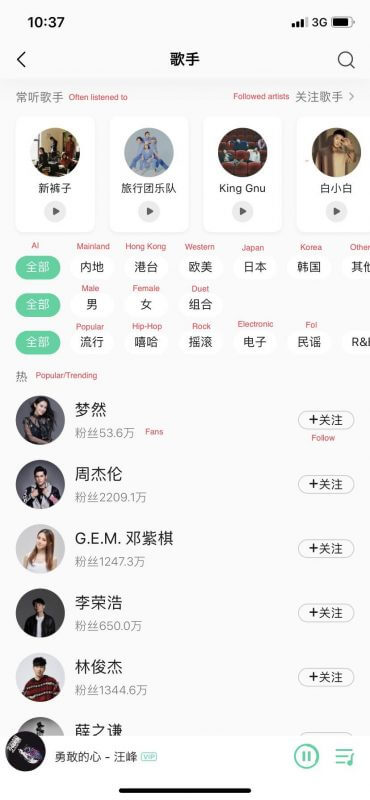
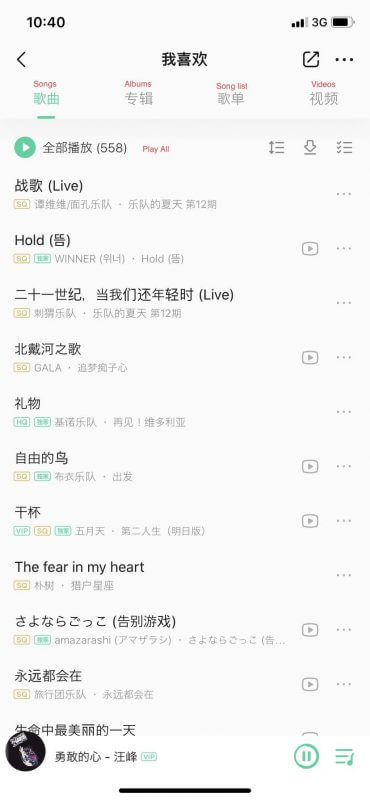
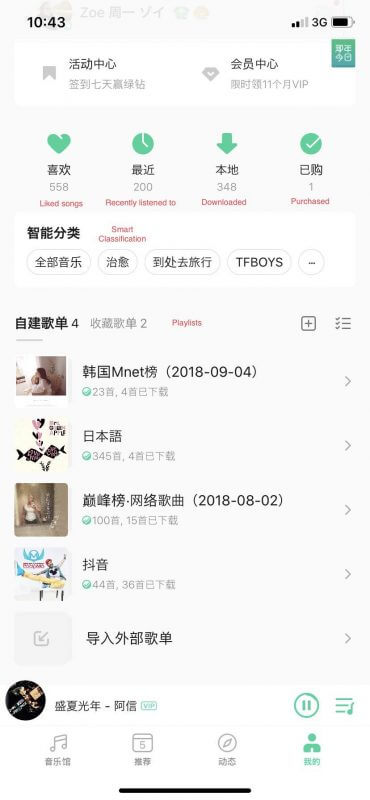
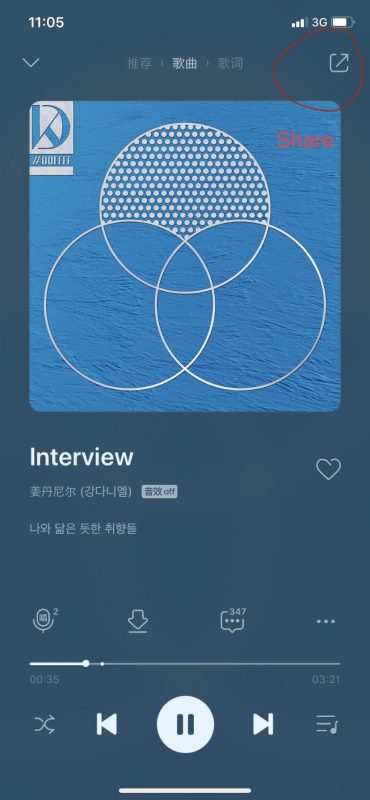
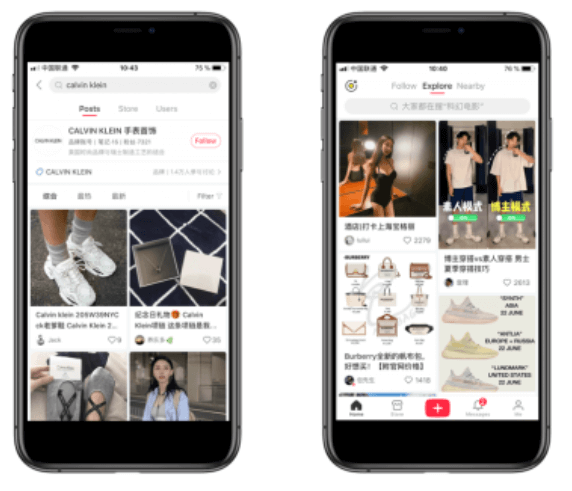

2 comments
China always makes the same apps as the west but China makes them fast
They are super speedy!